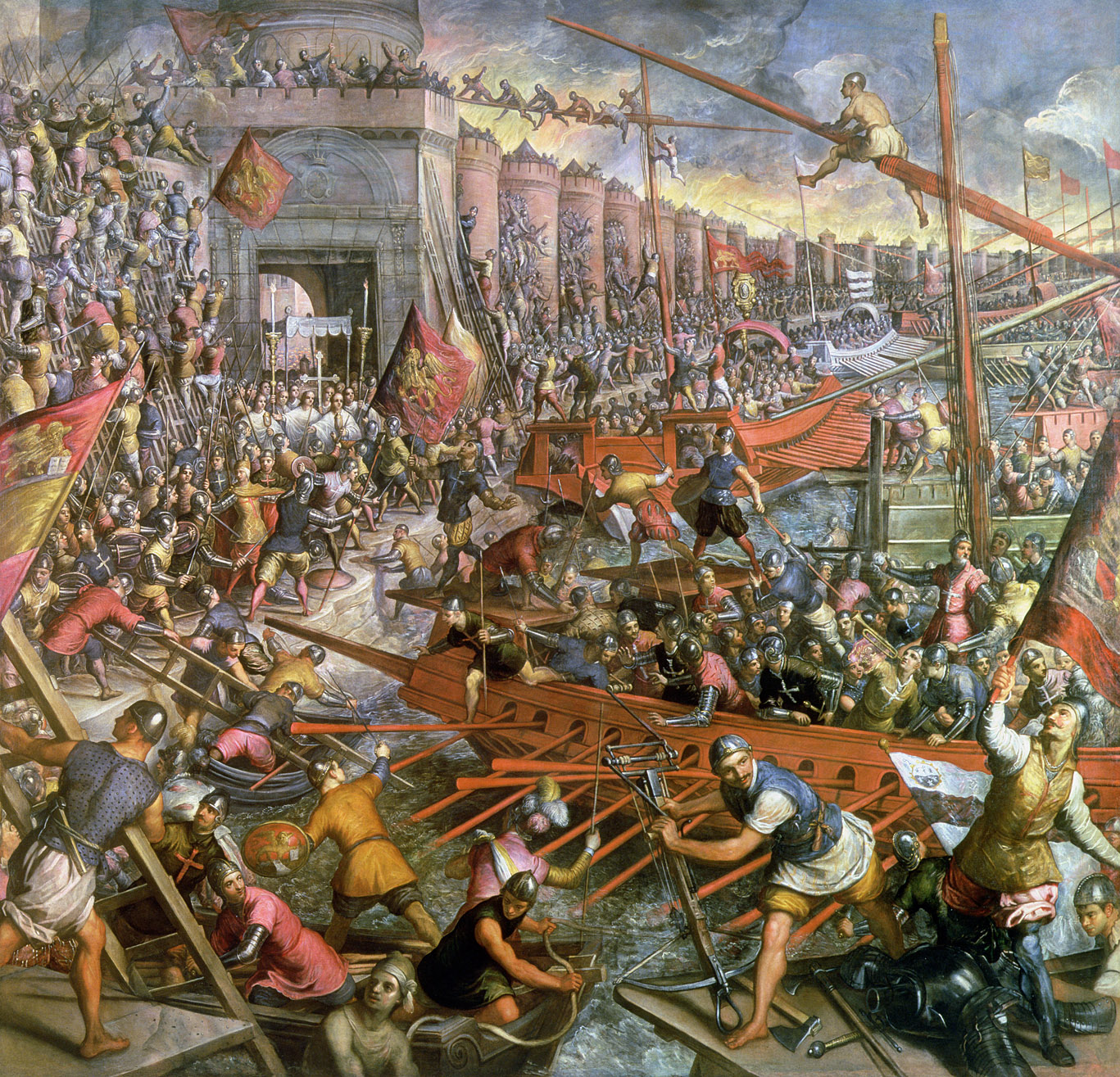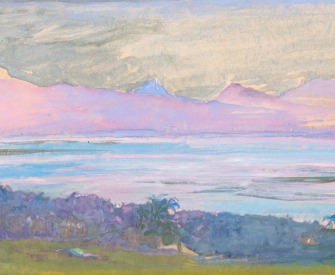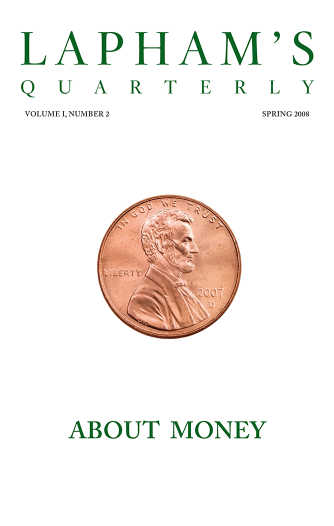As by means of water carriage, a more extensive market is opened to every sort of industry than what land carriage alone can afford it, so it is upon the sea coast, and along the banks of navigable rivers, that industry of every kind naturally begins to subdivide and improve itself, and it is frequently not till a long time after that those improvements extend themselves to the inland parts of the country.
A broad-wheeled wagon, attended by two men and drawn by eight horses, in about six weeks’ time carries and brings back between London and Edinburgh nearly four tons of goods. In about the same time, a ship navigated by six or eight men and sailing between the ports of London and Leith frequently carries and brings back two hundred tons of goods. Six or eight men, therefore, by the help of water carriage, can carry and bring back in the same time the same quantity of goods between London and Edinburgh as fifty broad-wheeled wagons attended by a hundred men and drawn by four hundred horses. Were there no other communication between those two places, therefore, but by land carriage, as no goods could be transported from the one to the other, except such whose price was very considerable in proportion to their weight, they could carry on but a small part of that commerce which at present subsists between them, and consequently could give but a small part of that encouragement which they at present mutually afford to each other’s industry. There could be little or no commerce of any kind between the distant parts of the world. What goods could bear the expense of land carriage between London and Calcutta? Or if there were any so precious as to be able to support this expense, with what safety could they be transported through the territories of so many barbarous nations? Those two cities, however, at present carry on a very considerable commerce with each other and, by mutually affording a market, give a good deal of encouragement to each other’s industry.
Since such, therefore, are the advantages of water carriage, it is natural that the first improvements of art and industry should be made where this convenience opens the whole world for a market to the produce of every sort of labor, and that they should always be much later in extending themselves into the inland parts of the country. The inland parts of the country can for a long time have no other market for the greater part of their goods but the country which lies round about them and separates them from the sea coast and the great navigable rivers. The extent of the market, therefore, must for a long time be in proportion to the riches and populousness of that country, and consequently their improvement must always be posterior to the improvement of that country. In our North American colonies, the plantations have constantly followed either the sea coast or the banks of the navigable rivers, and have scarce anywhere extended themselves to any considerable distance from both.

The Capture of Constantinople in 1204, by Tintoretto, c. 1580. Palazzo Ducale, Venice.
The nations that, according to the best-authenticated history, appear to have been first civilized were those that dwelt round the coast of the Mediterranean Sea. That sea, by far the greatest inlet that is known in the world, having no tides, nor consequently any waves, except such as are caused by the wind only, was, by the smoothness of its surface, as well as by the multitude of its islands and the proximity of its neighboring shores, extremely favorable to the infant navigation of the world; when, from their ignorance of the compass, men were afraid to quit the view of the coast, and from the imperfection of the art of shipbuilding to abandon themselves to the boisterous waves of the ocean. To pass beyond the Pillars of Hercules, that is, to sail out of the Strait of Gibraltar, was, in the ancient world, long considered as a most wonderful and dangerous exploit of navigation. It was late before even the Phoenicians and Carthaginians, the most skillful navigators and shipbuilders of those old times, attempted it—and they were, for a long time, the only nations that did attempt it.
All the inland parts of Africa and all that part of Asia which lies any considerable way north of the Euxine and Caspian seas, the ancient Scythia, the modern Tartary and Siberia, seem, in all ages of the world, to have been in the same barbarous and uncivilized state in which we find them at present. The sea of Tartary is the frozen ocean, which admits of no navigation, and though some of the greatest rivers in the world run through that country, they are at too great a distance from one another to carry commerce and communication through the greater part of it. There are in Africa none of those great inlets, such as the Baltic and Adriatic seas in Europe, the Mediterranean and Euxine seas in both Europe and Asia, and the gulfs of Arabia, Persia, India, Bengal, and Siam, to carry maritime commerce into the interior parts of that great continent; and the great rivers of Africa are at too great a distance from one another to give occasion to any considerable inland navigation. The commerce, besides, which any nation can carry on by means of a river which does not break itself into any great number of branches or canals, and which runs into another territory before it reaches the sea, can never be very considerable, because it is always in the power of the nations who possess that other territory to obstruct the communication between the upper country and the sea. The navigation of the Danube is of very little use to the different states of Bavaria, Austria, and Hungary, in comparison of what it would be if any of them possessed the whole of its course till it falls into the Black Sea.
From The Wealth of Nations. Smith was briefly kidnapped by Roma at the age of four. A biographer observed, “He would have made, I fear, a poor gypsy.” Publishing his first book, The Theory of Moral Sentiments, in 1759, Smith was later elected to the Royal Society of London and became acquainted with Edward Gibbon, who published the first volume of his History of the Decline and Fall of the Roman Empire in February 1776. Less than a month later, Smith published The Wealth of Nations. “I am a beau in nothing but my books,” Smith once said about his library.
Back to Issue






